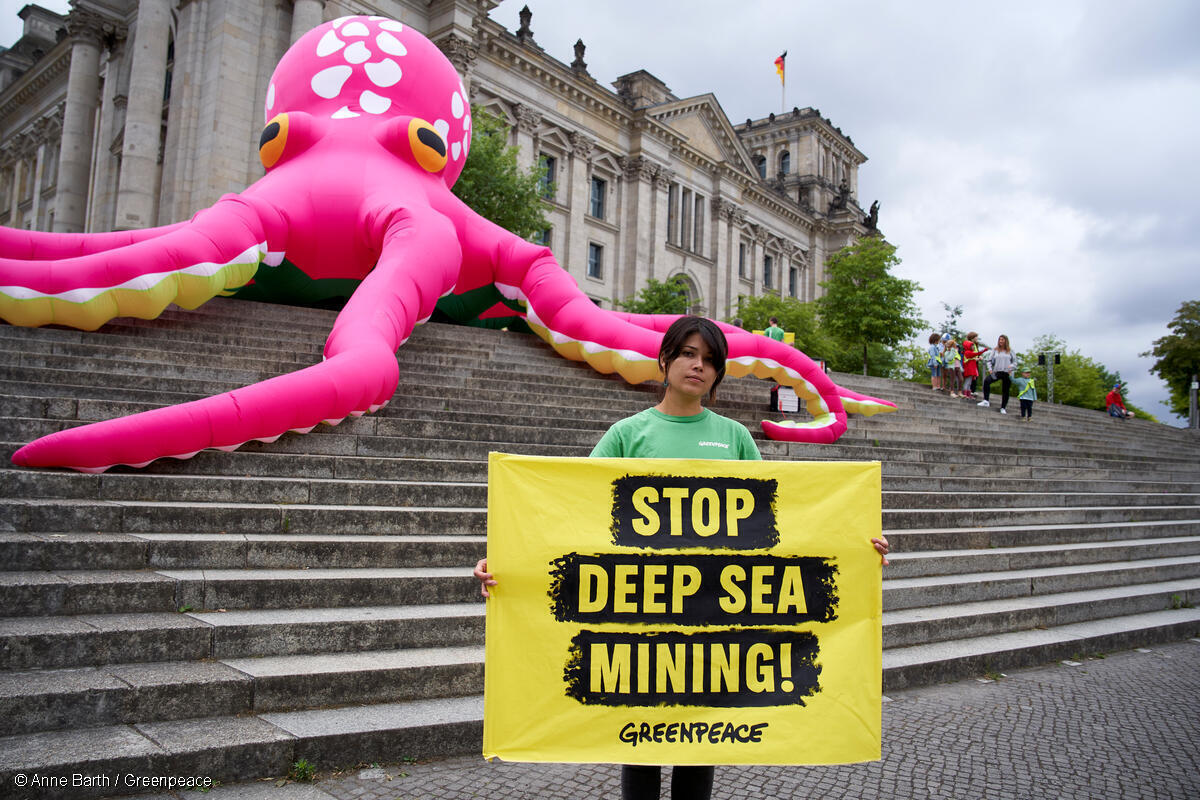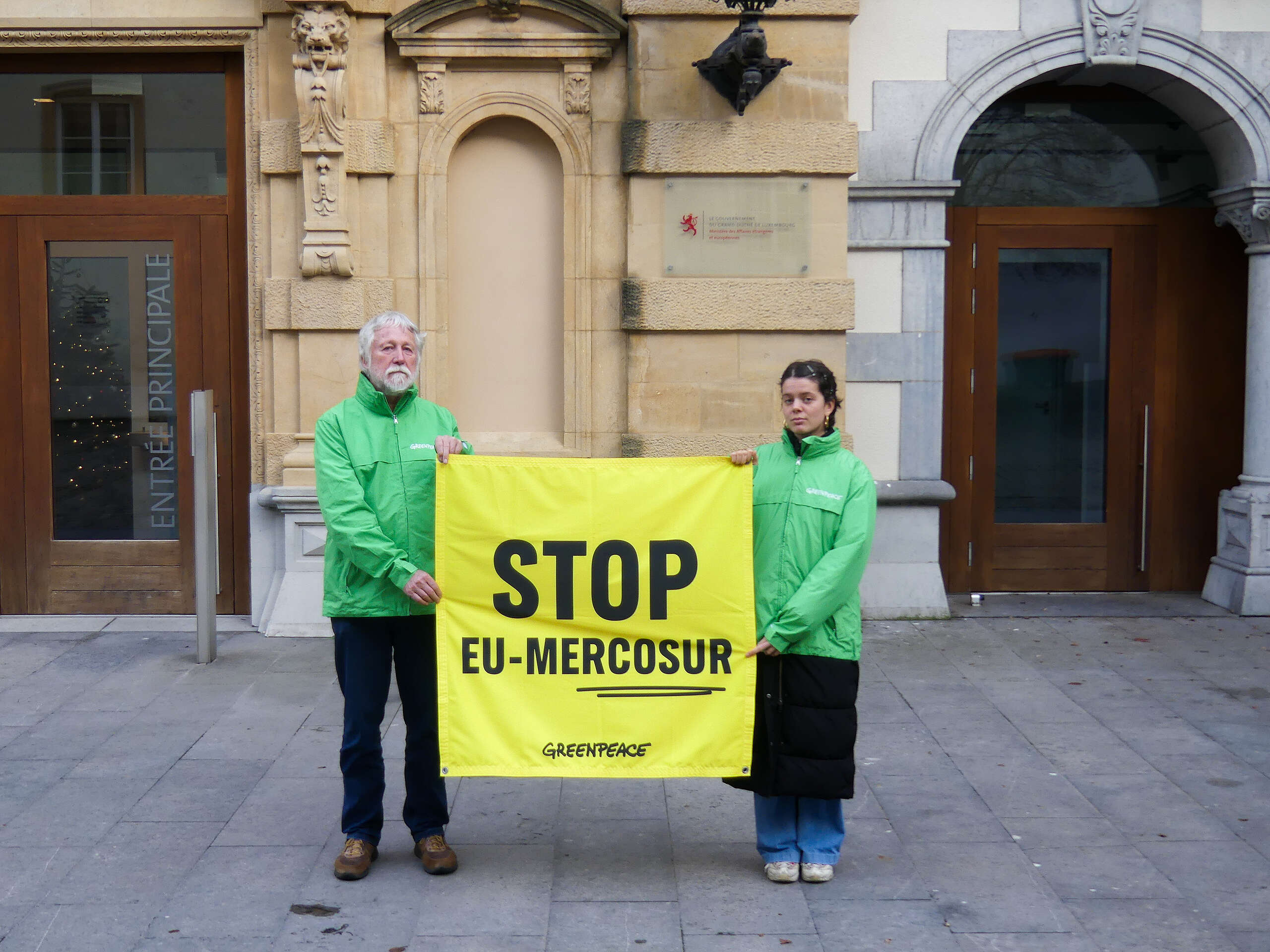Luxembourg, 21 June 2021 – Sustainability funds hardly redirect capital to sustainable activities compared to conventional funds, according to a new study published by Greenpeace Luxembourg and Greenpeace Switzerland. Exposing these misleading ‘green’ marketing practices, Greenpeace demands policymakers to secure binding standards to fight greenwashing and keep sustainability funds in line with the Paris Agreement climate goals.
The study, which examined 51 sustainability funds, was conducted by the Swiss sustainability rating agency Inrate on behalf of Greenpeace Luxembourg and Greenpeace Switzerland. [1] The funds in question barely managed to redirect more capital towards a sustainable economy than conventional funds, failing to contribute to combating the climate crisis, and misleading owners who want to increasingly invest their money in sustainable projects. The results of the study raise profound questions about Luxembourg’s financial sector, which is promoted as a centre of excellence for sustainable finance.
“Offering clients ‘green’ financial products that – compared to regular funds – are not making any relevant contribution to sustainable development amounts to greenwashing,” said Martina Holbach, Climate and Finance Campaigner at Greenpeace Luxembourg. “Not only do the analysed sustainability funds fail to effectively funnel more capital into sustainable companies or activities than conventional funds. By calling themselves ‘ESG’ or ‘green’ or ‘sustainable’, they give the wrong idea to customers who want their investments to have a positive effect on the environment.”
The funds analysed showed no significantly lower carbon intensity than regular funds. When comparing the Environmental, Social, and Corporate Governance (ESG) Impact score of sustainability funds with that of conventional funds, the former was only 0,04 points higher – which is a trivial difference. [2] The investment approaches analysed in the study such as “Best-in-Class”, climate-related theme funds or ‘exclusions’ also failed to channel more money into sustainable companies and/or projects than regular funds.
In the case of an ESG fund which received a low ESG Impact score of 0.39, over a third of this fund’s capital (35%) was invested in critical activities, which was more than double the average share amongst the conventional funds. Most of the critical activities were fossil fuels (16%, half of which were derived from coal and oil), climate-intensive transportation (6%) as well as mining and production of metal (5%).
This misleading marketing is possible because sustainability funds are not required to have a measurable positive impact, even if their title clearly implies a sustainable or ESG impact.
“Luxembourg – the largest investment fund centre in Europe and the second largest in the world – is being touted as a leader in sustainable finance,” said Martina Holbach. “Setting high standards for sustainable investments is crucial. Most sustainability funds signal improved portfolio impacts. Not fulfilling this promise poses legal and reputational risks due to greenwashing and decreases the trust of asset owners.”
Sustainable investment products must lead to lower emissions in the real economy. Greenpeace calls upon decision-makers to deploy the necessary regulation to promote true sustainability in the financial markets. This must include comprehensive minimum requirements for so-called sustainable investment funds to invest in economic activities which contribute to structural change in a proactive and effective manner and whose emissions reduction path is compatible with the Paris climate targets. Though the EU has recently implemented major regulative changes related to sustainable finance [3], this regulatory framework presents gaps and shortcomings which must be overcome in order to deliver the desired results.
Financial centres such as Luxembourg can play a crucial role in obtaining this goal – but only if they renounce greenwashing in favour of legitimate sustainable financial products.
Notes:
[1] The entire report “Sustainability Funds Hardly Direct Capital Towards Sustainability. A Statistical Evaluation of Sustainability Funds in Switzerland and Luxembourg” as well as a briefing summarising the main points are available here.
[2] The ESG Impact score for conventional funds was 0.48 compared to sustainable funds with a score of 0.52 – on a scale from 0 to 1 (zero corresponding to a very negative net impact, one to a very positive net impact).
[3] In particular the EU Taxonomy, the Sustainability-related Disclosure in the Financial Services Sector Regulation (SFDR), amendments to the benchmarking regulations, the Non-Financial Reporting Directive (NFRD) and the Markets in Financial Instruments Directive (MiFID II).



